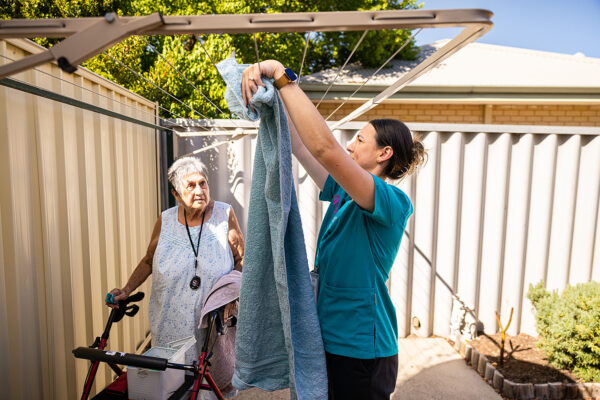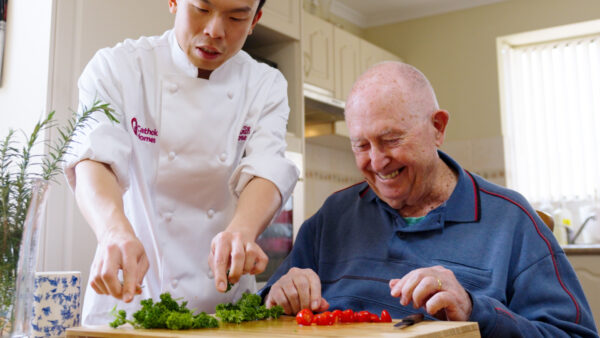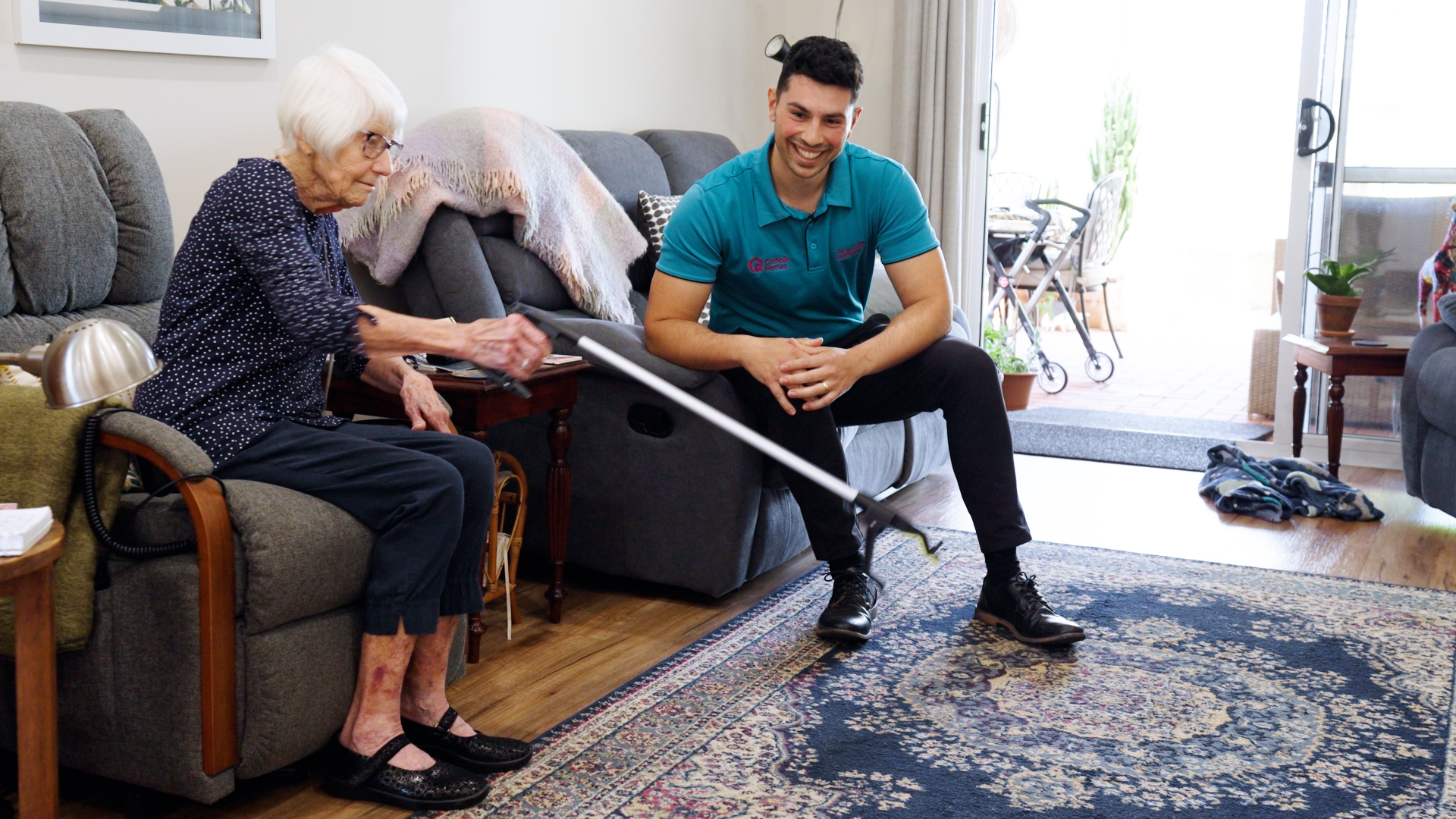Signs It’s Time for Home Care
It can be hard to admit that someone you love might need more help than you can give. Often, the signs don’t arrive all at once, and changes come slowly. A few forgotten appointments. A house that feels a little untidy. Days when they seem more tired than usual.
These moments don’t mean independence is gone. They’re gentle signs that some extra support could make life easier, calmer, and a lot more enjoyable.
Learn more by getting to know Trish’s Home Care Journey here.
-
Trouble Remembering Things
Small lapses in memory can slowly start to affect daily routines. Memory slips can quietly create challenges in everyday life. Missed medications, an oven left on, a bill misplaced, a doctor’s visit that’s missed. Loved ones can help, leaving notes and making calls, but it’s hard to catch everything.
With a bit of support, those worries fade. Medication is taken when it should be. Meals are prepared, and gentle reminders happen naturally. Instead of living with concern about what might have been forgotten, life feels steady again. Independence isn’t taken away. It’s protected with care and understanding.
-
Mood Swings and Confusion
Cognitive changes can sometimes show up as unexpected emotions or moments of uncertainty. Maybe it’s difficult to recognise a familiar street or easy to forget the way to a neighbour’s house, which can become sources of worry and vulnerability. Other symptoms could include:
- Sudden changes in mood that feel out of character
- Expressions of worry when nothing seems wrong
- Losing track of familiar surroundings
- Conversations that trail off mid-sentence
This is where support and companionship are vital, offering the reassurance and clarity needed to navigate a world that feels unsteady. With calm, trained support nearby, compassionate home care can help emotions settle and foster confidence.
-
Withdrawing From Life
Withdrawal sometimes looks like silence. Days grow quieter, once-loved hobbies are set aside, and socialising happens less. It’s important not to leave the early warning signs of withdrawal unaddressed. Having someone there to encourage conversation can turn the tide before the quiet becomes unbearable. Signs include:
- Declined social invitations
- Less focus on hobbies
- Community ties lessen
- Less time spent with neighbours and friends
When someone starts to retreat, connection can gently bring them back. Companionship care helps rekindle joy, rebuild community, and remind individuals that they are still surrounded by people who care.
-
Poor Hygiene
When energy fades, even the simplest routines can feel overwhelming. Bathing, changing clothes, or washing hair may become tasks that keep getting postponed. Signs include:
- Clothes changed less often
- Hair left unwashed
- Nails and skin need care
- Lapses in dental hygiene
When a kind hand steps in to help, everything feels lighter. A warm shower, fresh clothes, and small grooming routines can make a huge difference. They restore comfort and the confidence to face the day feeling good again.
-
An Unusually Untidy House
An individual’s home can often mirror an internal struggle. Piled up laundry, untouched dishes and hoarding are not signs of laziness, but rather a sign that managing life alone has become overwhelming:
- Rooms are beginning to fill with clutter
- Common household tasks are being neglected
- Potential fire hazards
Support restores dignity. It keeps the space clean and healthy, brings back order without judgment, and ensures the person feels cared for rather than overwhelmed.

-
Poor Nutrition
When managing life becomes a struggle, nutrition can slip. Skipped meals and dehydration can cause issues, making the smallest tasks feel exhausting. This can show up in the following ways:
- Relying on small, repetitive meals
- Fresh groceries not used in time
- Weight loss or fatigue
Support at home provides structure. Someone to cook, to check the cupboards, to notice when appetite fades. Balanced meals bring back energy and strength. Care ensures not just that food is eaten but that it’s nourishing and enjoyable, giving back vitality one plate at a time.
-
Increased Fall Risks
Balance can change quietly. A little hesitation on the stairs. Reaching out to furniture for support. Avoiding certain rooms. Each of these are signs that some gentle support could prevent serious injury.
- Reaching out to furniture for balance
- Struggling to climb out of bed
- Avoiding rooms with steps or uneven floors
- Hesitating before standing
Support addresses these risks early, steadying each step and removing obstacles before they become disasters.
-
Fatigue
There comes a point when tiredness is no longer just end-of-day weariness but a constant drain. This exhaustion can affect routines, making daily tasks seem harder. When unsupported, this can lead to malnutrition, increasing frailty, and further decline. It shows itself in many ways:
- Energy is drained before the day even begins
- Naps replacing meals
- Half-finished chores left scattered around the house
- No strength left for visits or hobbies
Fatigue makes it more difficult to engage with activities that bring joy. Home care eases the need to manage these necessary tasks and allows conservation of energy for the things that bring comfort and joy.
Why These Signs Matter
These signs are not just quirks of ageing. They are signals that care may be needed. Left without support, risks can pile up. Home care does not take freedom away. It gives it back by preventing emergencies and making everyday life safe again.

Getting started with Home Care can feel overwhelming. At Catholic Homes, we are here to support you every step of the way, from the initial consultation to setting up a personalised budget and care plan. Our comprehensive approach helps you stay comfortable at home without giving up your freedom.
We have a range of tailored home care packages.
